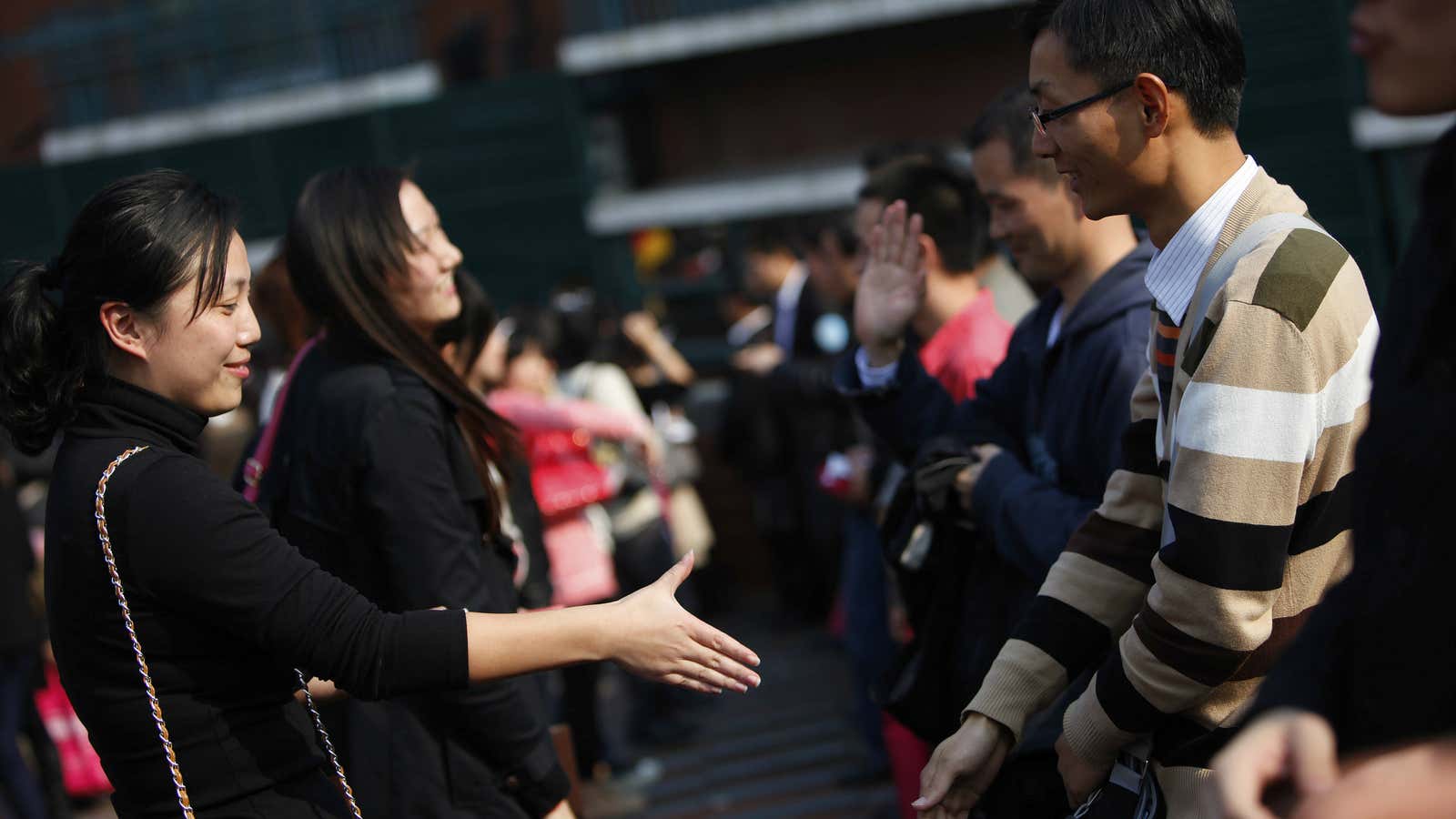A few months ago I became single for the first time in several years. As a statistician who studies online dating, I was intrigued to suddenly find myself a datapoint. I began to think more urgently about questions I once considered abstractly, like the connection between testing statistical hypotheses and testing romantic attraction.
Statisticians love to develop multiple ways of testing the same thing. If I want to decide whether two groups of people have significantly different IQs, for example, I can run a T-test or a rank sum test or a bootstrap. We can argue about which of these is most appropriate, but for the most part, if the effect is really statistically significant and large enough to matter, it should show up regardless of which test is used, as long as the test is reasonable and the sample isn’t tiny.
A similar lesson applies, I think, to first dates. When you’re attracted to someone, you overanalyze everything you say, spend extra time trying to look attractive, and so on. But if your mutual attraction is really statistically significant and large enough to matter, it should emerge regardless of the exact circumstances of a single evening. If the shirt you wear can fundamentally change whether someone is attracted to you, in other words, you probably shouldn’t be life partners.
Of course, sometimes a tiny detail does matter because it prevents future interactions: for example, you foolishly wear your XL Chess Team sweatshirt to the bar and a would-be Lothario never bothers to approach you and eventually discover that you look much better with it off.
This is a risk. In statistical terms, one glance across a crowded bar doesn’t provide a lot of data, increasing the probability of an incorrect decision. As a statistician, I prefer not to work with small datasets, and similarly, I’ve never liked romantic environments that give me very little data about a person. (Don’t get me started on Tinder. The only thing I can think when I see some stranger staring at me out of a phone is, “My errorbars are huge!” which makes it very hard to assess attraction.)
Even on a longer date, there’s some risk that a disaster at the beginning will ruin subsequent interactions. Starting a date by asking “How’s your relationship with your mother?” torpedoes any chance to have a truly intimate conversation about how she ran off to train monkeys. Still, I’m sticking to the principle: a statistically robust romance should hold up whether or not you wear makeup or the moon is full.
I think there’s even an argument for being deliberately unattractive on first dates, on the grounds that someone who still likes you must really like you. Take a rom-com trope: you vomit on them. This isn’t sexy. On the other hand, someone who finds you attractive after that is much more likely to still find you attractive when you’re puking during pregnancy or chemotherapy.
So should you deliberately render yourself less attractive by, for example, wearing a baggy t-shirt to your first date? There’s a risk to dressing sloppily: it may falsely signal disinterest. Perhaps the more sensible advice is not “Be unattractive,” but “Behave in a way that’s true to yourself, even if it might seem unattractive.” Vegans, don’t conceal your urge to pick snails off the sidewalk; militant feminists, don’t submit to the kyriarchal norm of shaving your legs. Think the Second Amendment is a fundamental right? Greet your date with a hand on your holster.
A quick note: I use statistical language in this piece because I’m a nerd (which may explain why I’m currently single) and not because I’m making a rigorous mathematical argument that you should follow my advice. So please don’t take this piece too seriously. It’s not my fault if the love of your life spurns you because you didn’t shower for a week before your date.
